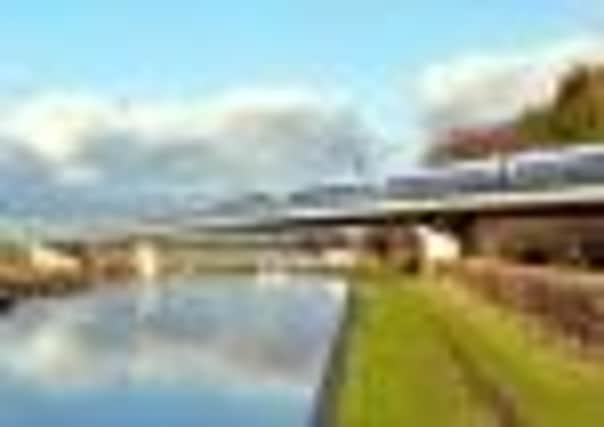Bridging the great divide?


But HS2 has created a new gulf - between Westminster and Birmingham, and those who welcome high speed rail and those who don’t.
A chasm has opened up between the cities, with only politicians and business leaders on either side enthusiastic about HS2.
Advertisement
Hide AdAdvertisement
Hide AdThe £32.7 billion project - the 150 miles to Birmingham cost £17 billion and open in 2026 - will enable trains reaching 250mph to travel between the two cities in 49 minutes before branching to Leeds and Manchester.
Announced in the final months of the Labour government, many hoped it would fall victim to the coalition’s austerity measures, but all three Westminster parties have stayed supportive.
Both Birmingham City Council leader Mike Whitby and Midlands TUC regional secretary Rob Johnston said it would result in job creation and new investment, along with politicians in Manchester, Nottingham and Leeds.
But both Warwick District Council and Warwickshire County Council are part of the 51m group of local authorities campaigning against the line.
Advertisement
Hide AdAdvertisement
Hide AdWarwick District Council leader Cllr Michael Doody said: “It’s not going to bring Warwickshire any benefits. It will blight the countryside, environmentally it’s a silly decision and businesswise it’s been manoeuvred to make it look better than it is.
“The sooner this government and all parties pull out the better.”
Warwickshire County Council’s deputy leader Cllr Bob Stevens (Con, Feldon) said HS2 would have a “devastating” impact on the countryside, little benefit in the county and “unquantifiable” hidden costs.
The scheme split Coventry and Warwickshire Chamber of Commerce, whose chief executive Louise Bennett called for the line, which does not stop in the county or the city, not to deliver economic benefits elsewhere.
Advertisement
Hide AdAdvertisement
Hide AdEvery detail has been disputed. The original time saving between the cities was given as 20 minutes, before Chiltern Railways cut nine minutes off their service. Cllr Doody said extra tunnels would further erode the advantage, and that services would be cut to drive people onto the fast trains.
But Michael Roberts, chief executive of the Association of Train Operating Companies called HS2 “a vote of confidence” in railways and claimed it would mean faster and more frequent local services as space was freed up.
West Midlands Friends of the Earth’s campaigner Chris Crean said pumping £32 billion into high speed travel for the “wealthy few” was not the answer, adding current plans would not do enough to cut emissions.
Birmingham Airport chief executive Paul Kehoe said that connecting high speed rail to airports with spare capacity would give consumers more choice, and regional economies would grow.